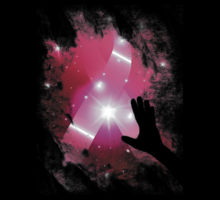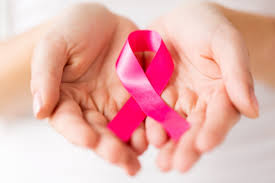
 We have already seen that the incidence of breast cancer is increasing at a very rapid pace. In comparison to the developed countries breast cancer is fast moving as the most prevalent cancer amongst women in the developing countries.
We have already seen that the incidence of breast cancer is increasing at a very rapid pace. In comparison to the developed countries breast cancer is fast moving as the most prevalent cancer amongst women in the developing countries.
Preventive measures contribute in a big way in reducing the risk but the fact remains that preventive strategies are not sufficient to eliminate the risk of the disease which is on a rise in the developing countries with low and middle income population forming a large base. In such countries breast cancer is typically diagnosed at a late stage. It is important that early detection be actively adopted for improving the results of breast cancer treatment. Regular screening is important as a part of prevention and control measures that can be adopted.
What is screening?
Screening is the act of conducting tests in order to observe for early signs of a disease amongst people who do not show any symptoms. When it comes to breast cancer one third of the cases are detected through screening. It is important to remember that in the case cancer early detection improves the chances of surviving it. When detected early it reduces chances of a complete breast removal (mastectomy) or/and chemotherapy.
It is important to remember that the results of a screening may not be accurate. There are chances that the results obtained may be falsely negative (receiving a normal report when cancer is present) and falsely positive (receiving a report that cancer is present when it is not)
Screening Methods
Some of the methods for screening for Breast Cancer are discussed below:
1. Mammogram – it is the first screening for Breast Cancer that we will be

discussing in this article. It is nothing but a breast x ray. You will be asked to change into a clinical gown for getting a mammogram done. Each breast is x- rayed separately. The breast is flattened between two panels. This can be a little uncomfortable. A person opting for a mammogram may also be prescribed a pain killer to be taken a few hours before the test.
We hope that this gives you a certain idea of what the Mammogram is like so that you are better prepared for the screening. The radiologist will prepare the report after the Mammogram. This may take a little time. If the Mammogram is abnormal you may have to take some additional screening tests.
As discussed above the results of a mammogram may not be accurate. It has been noted that in about ninety percent cases of Mammogram the initial result is abnormal. However, every abnormal result does not indicate breast cancer. The same would be covered in detail separately. Some say that the Mammogram is misleading. However, it is the most recommended screening test for breast cancer and we advise all the women who are reading this article to take up the Mammogram on regular basis.
2. Breast MRI – as the name itself clarifies a MRI of the breast is done in this screening for Breast Cancer. This is suggested only when the Mammogram results are abnormal. It is also like an x ray but it is more precise. This is not recommended for women who do not have a high risk of breast cancer. It is a test that is used only on women who have had breast cancer in the family. However, it depends on her consulting doctors.
It is important to remember that there is no guarantee that cancer cannot develop in the time period falling between scheduled mammograms. It is best to be aware and conscious of one’s body. Any changes that you observe in your body should be a reason good enough to consult a physician. We have already discussed in the previous articles the self checks that a woman can do to understand if she has breast cancer.
Screening at what age?
Though screening is recommended starting at the age of 40 but this cannot be an accepted rule for all cases. Depending on individual cases and circumstances screening may be recommended at an age earlier than 40.
What after screening?
After the results of a screening have been obtained, the reports are checked by the doctors. In case a physical examination indicates a lump and the screening results are also positive, conducting a biopsy will be the next step.
Does screening mean exposure to radiation?
Undoubtedly, tests done for screening expose one to radiation but it is important to remember that the level of radiation is very small and the benefits of early detection outweigh the risks associated with exposure to radiation.
Early Detection Saves Lives!
Always remember that if the breast cancer is detected in the first or the second stage itself the chances for recovery are much higher. This should act as a motivation enough to take proper care of yourself, opt for regular screening and conduct regular self checks. When you start the treatment early it may be possible to avoid a complete breast removal and/or chemotherapy.










